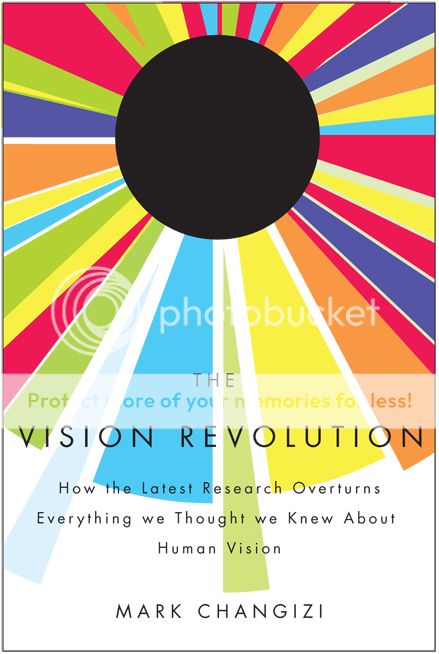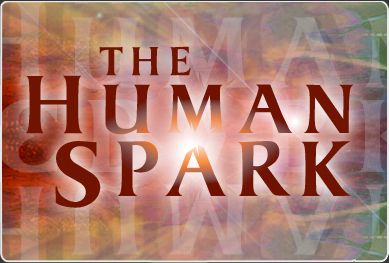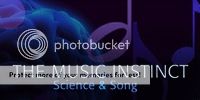Guest Article: The Idea-Monger: No Genius Required by Mark Changizi (Podcast)
May4

The Vision Revolution by Mark Changizi. ©2010 BenBella Books, all rights reserved
Dr. Mark Changizi, a cognitive science researcher, and professor at Rensselaer Polytechnic Institute, is one of the most exciting rising stars of science writing and the neurobiology of popular culture phenomena. His latest book, The Vision Revolution, expounds on the evolution and nuances of the human eye—a meticulously designed, highly precise technological marvel that allows us to have superhuman powers. You heard me right; superhuman! X-ray vision, color telepathy, spirit reading, and even seeing into the future. Dr. Changizi spoke about these ideas, and how they might be applied to everything from sports stars with great hand-eye coordination to modern reading and typeface design with us in ScriptPhD.com’s inaugural audio podcast. He also provides an exclusive teaser for his next book with a guest post on the surprising mindset that makes for creative people. Read Dr. Changizi’s guest post and listen to the podcast under the “continue reading” cut.
Discovering LIFE on Planet Earth—Editor’s Selection
Mar2

LIFE logo ©2010 Discovery Channel/BBC, all rights reserved.
In 2006, The Discovery Channel, in partnership with the BBC, premiered the 11-part Planet Earth, the most expensive natural history mini-series ever filmed, and the first in high definition. It gave viewers a sweeping, intimate overview of the Earth’s diverse natural habitats. Yet long before Planet Earth premiered, plans were already underway for its follow-up opus, LIFE, which would focus on the animals, insects, and creatures that call those habitats home. The result, four years in the making, is historic television—never-before-recorded mating rituals, survival scenes, and brutal savagery. For the naturalist and the nature-lover, LIFE will, quite simply, change your view of life. After the “continue reading” cut, we preview the first few episodes and offer a rare candid interview with executive producer Mike Gunton. We are proud to make LIFE on Discovery Channel an official ScriptPhD.com Editor’s Selection.
On ‘Creation’, Charles Darwin, and Survival of the Fittest
Jan0
There is grandeur in this view of life, with its several powers, having been originally breathed into a few forms or into one; and that, whilst this planet has gone cycling on according to the fixed law of gravity, from so simple a beginning endless forms most beautiful and most wonderful have been, and are being, evolved.

Charles Darwin
Charles Darwin’s postscript to perhaps the greatest work of biology ever recorded, The Origin of Species, ignited an acrimonious debate about science, religion, the mutual exclusivity thereof, and where we come from. 150 years later, as we celebrate the anniversary of Darwin’s monumental scientific achievement, it is a debate that has yet to abate. Regardless of what stance one takes on evolution and natural selection, fascination with the life and times of this inimitable figure is undeniable. A new biopic, Creation, delves into the dichotomy of Darwin the naturalist and family man, the disapproval he faced from a devotedly Christian wife, and the inner anguish he faced in whether to publish his findings. ScriptPhD.com’s Stephen Compson was recently treated to a private screening of the film and had the extraordinary opportunity to sit down with Darwin’s great-great-grandson Randal Keynes, whose Charles Darwin biography the movie was based on. For our exclusive content, please click “continue reading.”
Bad Education: New PBS Science Mini-Series Missing ‘Spark’
Dec2

The Human Spark ©2009 PBS, all rights reserved.
The Human Spark is a new three-part documentary special on PBS in which Alan Alda soldiers after the genetic and cognitive elements that make him smarter than your average chimpanzee. In the first episode, he travels to numerous archaeological sites and many of the world’s finest research centers to look at how humans diverged from neanderthals and why we’re the ones writing the history books. Episode two tracks a series of experiments on chimpanzees and human children to illustrate the psychological differences. The final installment shows off some of the latest brain imaging studies and and linguistics research to postulate a theory on the nature of the ‘human spark’. With an interesting scientific premise as a basis, a hot field in which a lot of exciting, new information has been discovered within the last decade, and financial sponsorship by the Alfred P. Sloan Foundation, one of the most generous and prestigious in all of science, this should have been a knockout for PBS. Sadly, the finished product is merely another example of a strong concept with poor execution, punctuated by bloopers that the documentary’s creators were too pressed for content to take out.
This is Your Brain on Music
Nov0

The Human Instinct image ©2009 PBS, all rights reserved.
Music. We all know what it sounds like when we hear it. It has the ability to create powerful emotions, or bring back memories from the distant past in our lives. We may use it when we exercise, study for exams, read, or for traveling form point A to point B. But what is music? Is it unique to human beings? How do we interpret music when we hear it? Are the emotions created by music universal, irrespective of the listener’s culture and country of origin? Can music teach us anything about how the human brain functions? These interesting questions and more are explored in the fascinating documentary The Music Instinct: Science and Song, a PBS production that was recently honored with the top prize at the prestigious annual Pariscience International Science Film Festival. ScriptPhD.com’s newest regular contributor NeuroScribe provides his review and discussion under the “continue reading” jump.

















